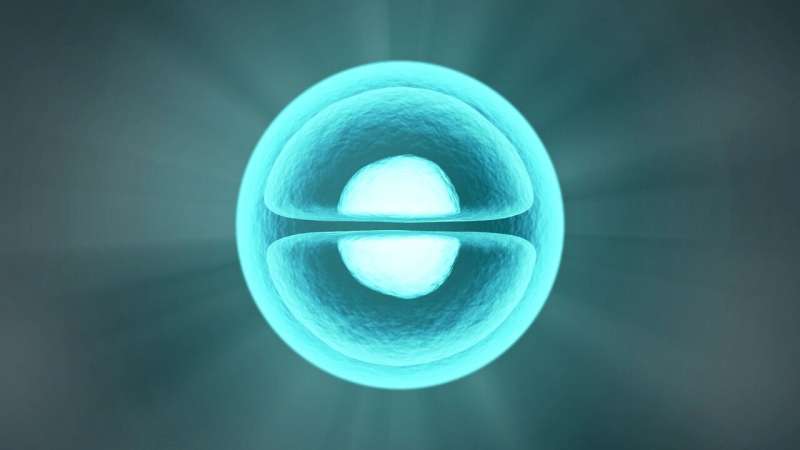Researchers uncover why cells struggle to fully change identity in reprogramming efforts

A new study has shed light on the challenges of converting one type of specialized cell into another, a process critical for advances in regenerative medicine. Despite recent progress in the field, a key obstacle in maintaining the new identity of reprogrammed cells lies in their original DNA methylation patterns—crucial markers that define cell identity.
The study, now in Proceedings of the National Academy of Sciences, was led by Professors Yosef Buganim and Howard Cedar from Hebrew University and Professor Ben Stanger from Pennsylvania University.
Cellular reprogramming, often achieved through a process known as trans-differentiation, allows scientists to transform cells into different types, such as turning skin cells into heart cells. While these transformations initially appear successful, the newly reprogrammed cells frequently fail to maintain their new identity over time.
The result? Cells that behave only partially like the target cell type, limiting their use in long-term treatments or therapeutic applications.
To better understand this issue, the researchers developed a novel approach to analyze changes in DNA methylation during cell conversion. DNA methylation is a chemical process that helps regulate which genes are active in a cell, serving as a sort of cellular memory that locks in a cell's identity.
By studying various models of direct cell conversion in both lab-grown cells and animal tissues, the team discovered that, although the cells may begin to look and act like their new type, they retain their original DNA methylation patterns.
"Despite significant changes in gene expression, the reprogrammed cells are unable to fully erase their original developmental instructions. This limits their ability to fully embrace their new role," explained Professor Buganim.
The study suggests that the developmental constraints embedded in the regulatory regions of DNA prevent cells from resetting these patterns. As a result, reprogrammed cells fall short of becoming fully functional versions of their intended type.
"This discovery opens up new avenues in understanding the molecular barriers to complete cellular reprogramming," added Professor Cedar. "It also brings us one step closer to figuring out how to overcome these roadblocks, which could have significant implications for future medical applications, including tissue regeneration and disease modeling."
These findings mark an important step in the field of cellular reprogramming, offering crucial insights into how to achieve stable and functional cell transformations for future cell-based therapy.
More information: Ahmed Radwan et al, Transdifferentiation occurs without resetting development-specific DNA methylation, a key determinant of full-function cell identity, Proceedings of the National Academy of Sciences (2024).
Journal information: Proceedings of the National Academy of Sciences
Provided by Hebrew University of Jerusalem

















